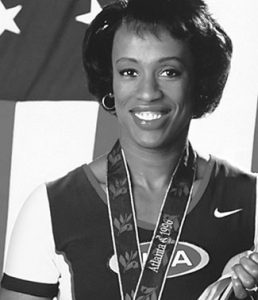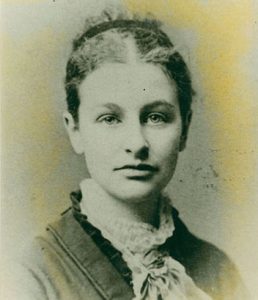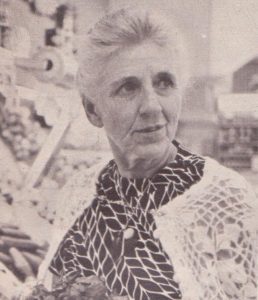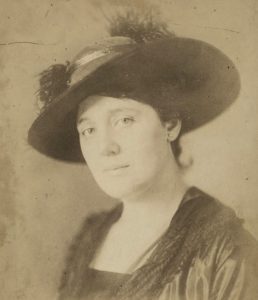Women Heroes of Child Health
For Women’s History Month, we’re celebrating five pioneering women who made strides in various realms of child health.
Rebecca Lee Crumpler
At a time in the United States when women doctors could be counted in the low hundreds, Rebecca Lee Crumpler became the first black woman to earn a medical degree in 1864 from the New England Female Medical College. She first practiced medicine in poor neighborhoods of Boston, serving black women and children who were either ignored or harmed by much of the medicine being practiced in the U.S. at the time, especially since many male doctors did not properly understand appropriate treatment for women’s health issues.
When the Civil War and the emancipation of slaves left millions of people destitute and sickened by diseases, Crumpler traveled to Richmond to work for the Freedman’s Bureau helping freed slaves who were denied care by white physicians. Subject to intense racism and sexism, she had trouble getting prescriptions filled and the supplies she needed to do her job. After four years of treating the women and children impacted by the Civil War, Crumpler returned to Boston where she continued to treat these vulnerable communities, unconcerned with parents’ ability to pay for her services. In 1883, she published the Book of Medical Discourses using the notes she kept over her career. The book was one of the first ever guides to medicine and health best practices that focused on women and children.
Jacqueline “Jackie” Joyner-Kersee

Born in 1962, Jackie Joyner-Kersee is still considered one of America’s top ranked athletes. She won three gold, one silver, and two bronze Olympic medals in the heptathlon and long jump, conquering the Olympics and earning “GOAT” status. The track and field star has won numerous awards from “Athlete of the Year” in 1987 to being honored in 1998 as one of the 16 greatest players in UCLA women’s basketball history.
Joyner-Kersee is an active philanthropist in children’s education, racial equality, and women’s rights. She is a founder of the Jackie Joyner-Kersee Foundation, which encourages young people in East St. Louis to pursue athletics and academics. It focuses on helping to improve the lives of at-risk children in her hometown and inspire others across the U.S.
Lucy Wheelock

Lucy Wheelock was instrumental in ensuring U.S. education included kindergarten for 5-year-olds. Kindergarten, founded by Friedrich Froebel in Germany who opened his first school in 1837, focused on early childhood learning based on play. Brought to America by German immigrants, schools in these communities began to implement English-language kindergartens, and more schools began to adopt this form of early learning. Not all educators believed structured play and life lessons were appropriate for early childhood education, but Lucy Wheelock, a former writer and classicist who became an educator for young children in 1879, helped bridge the worlds of early childhood education to establish U.S. kindergarten.
Through kindergarten, Wheelock aimed to set children up for better academic success and to Americanize immigrants to lift families out of poverty. She recognized that policy reform needed both wealthy supporters and a united front. In her role as peacemaker and negotiator, she gained widespread support for what is now kindergarten in the U.S. She formed a college in Boston, Wheelock College, which later became part of Boston University, to continue to teach the benefits of early childhood education and the power of play as an educational tool. According to Wheelock, “The one thing that makes life worth living is to serve a cause, and the greatest cause that can be served is childhood education.”
Adelle Davis

Adelle Davis is one of the most famous female nutritionists in American history. Best known for her work on the effects of nutrients on metabolism and health, Davis was most interested in learning how nutrition affects expecting mothers and children as they grow.
In 1951, Davis published her book, Let’s Have Healthy Children. The book discussed the importance of adequate nutrition during pregnancy and how child nutrition is vastly different than adult nutrition. Davis’ work focused mainly on how much of each nutrient is enough according to one’s biochemistry and why. We all know calcium is highly important for the strength of our bones, and a lot of the knowledge we have regarding the importance of calcium is thanks to Adelle Davis. Davis’ Let’s Have Healthy Children book eased the worries and questions that expecting mothers had regarding adequate nutrition while pregnant. Davis paved the way in child nutrition by emphasizing the importance of fresh and natural baby foods rather than the canned baby foods, which, at the time, contained many additives and preservatives. She also advocated that pediatricians and obstetricians consider nutrition as a crucial aspect of a mother’s health, as nutrition was a commonly disregarded field during her time.
Melanie Klein

“One of the many interesting and surprising experiences of the beginner in child analysis is to find in even very young children a capacity for insight which is often far greater than that of adults. ” – Melanie Klein
Considered to be one of the most influential women in the history of psychoanalysis, the work of Melanie Klein led to significant advancements in developmental psychology – focused on human growth throughout the lifespan. Pioneering the technique of play therapy, her work was the first to shed light on the emotional, unconscious world of children.
Born in 1882, Klein initially had her eyes set on medical school. After briefly studying psychiatry at Vienna University, she relocated – first to Budapest where she began studying alongside psychoanalyst Sandor Ferenczi, and later Karl Abraham in Berlin. Reflecting on her own experience as a mother, Klein’s innovative and revolutionary thinking asserted that all human beings relate to others from birth and heavily influenced the development of child analysis. Klein is credited with co-founding the object relations theory, which emphasizes the depth at which nurturing relationships in a child’s environment deeply impact the psyche and can predict social and emotional development.
As one of the first psychoanalysts to work with children, Klein paved the foundation for many clinical practices and interventions used today, and she helped to translate the imaginative world of children and play.
Categories: Making Change Happen